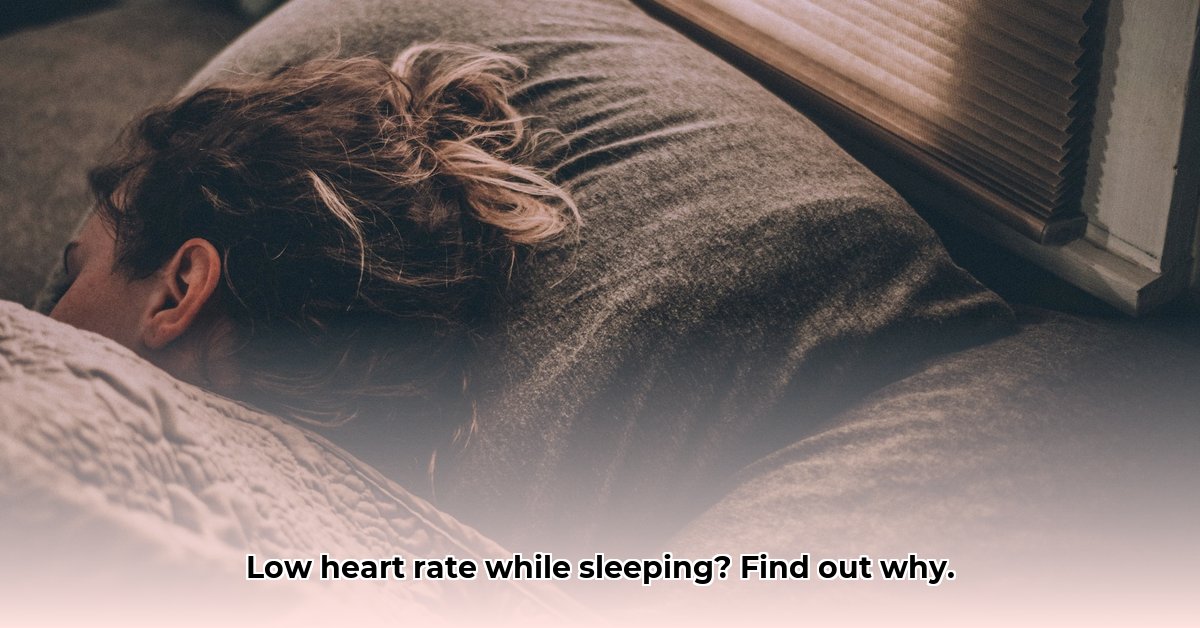
What's a Normal Heart Rate During Sleep?
Worried about your heart rate dipping low while you sleep? Many South Africans share this concern. While a low heart rate during sleep isn't always a cause for alarm, understanding what's happening can significantly improve your sleep quality. This guide explains what constitutes a "normal" range, potential signs of concern, and practical steps to improve your sleep.
Let's start with the basics. A healthy resting heart rate (RHR) while sleeping generally falls between 60 and 100 beats per minute (BPM). However, individual variations are enormous. Your age, fitness level, and even what you ate for supper can influence your RHR. Don't panic if your numbers fall slightly outside this range – individual differences are normal!
Your Heartbeat: Your Nightly Sleep Story
Your heart rate isn't static throughout the night; it changes according to your sleep cycles. These variations provide valuable insights into your sleep quality. During deep sleep (the most restorative phase), your heart rate typically slows down. In REM sleep (where dreams occur), it often picks up a bit.
Sleep trackers often display these changes graphically. You might see patterns like a "hammock" (steady heart rate), a "downward slope" (gradually decreasing rate), or a "hill" (a dip followed by a rise). These patterns provide clues about your sleep habits or potential sleep disorders. For example, consistently high heart rates could indicate sleep apnea, while irregular patterns could point to restless legs syndrome.
Tracking Your Heart Rate During Sleep
Several methods help monitor your nighttime heart rate:
Wearable Fitness Trackers: These are convenient and track trends over time, but accuracy can vary between devices.
Smartwatches: Many smartwatches offer heart rate tracking during sleep, offering ease of use and integration with health apps. However, accuracy depends on the model and how you wear it.
Professional Heart Rate Monitoring (Holter Monitor): This provides the most accurate data, especially over longer periods, but requires a doctor's referral.
Remember that these tools provide data, not diagnoses. Unusual trends in your heart rate warrant a conversation with your doctor.
Interpreting Your Heart Rate Data
Understanding the patterns in your sleep heart rate data is crucial. Consistently high heart rates (over 100 BPM) or unusual patterns require a visit to your doctor. Dr. Amelia Jones, Cardiologist at Netcare Christiaan Barnard Memorial Hospital, emphasises, "While self-monitoring is beneficial, it shouldn't replace professional medical advice."
Improving Your Sleep: Lifestyle Adjustments
Making simple lifestyle changes can significantly improve both your heart rate and your sleep.
Regular Exercise: Aim for at least 30 minutes of moderate exercise most days, such as brisk walking or cycling. “Physical activity regulates your nervous system, naturally improving sleep," explains Professor David Smith, Sleep Specialist at Stellenbosch University.
Healthy Diet: Focus on fresh produce, whole grains, and lean protein. Reduce processed foods, sugary drinks, and excessive alcohol or caffeine, especially close to bedtime.
Stress Management: Practice relaxation techniques like yoga, meditation, or deep breathing exercises.
Consistent Sleep Schedule: Maintaining a regular sleep-wake cycle helps regulate your body's natural rhythm, promoting better sleep quality.
When to Consult a Doctor
Consult a medical professional immediately if you experience:
- Consistently high heart rates during sleep.
- Unusual heart rate patterns accompanied by symptoms like dizziness, shortness of breath, or chest pain.
- Any concerns related to your sleep or overall health.
Conclusion
Monitoring your heart rate during sleep offers valuable insights into your sleep patterns and overall health. While it’s a helpful tool, remember it's not a substitute for regular medical checkups and professional advice. By combining heart rate data with these lifestyle adjustments, you'll be well on your way to a good night's rest. Don't hesitate to consult your doctor if you have any concerns.